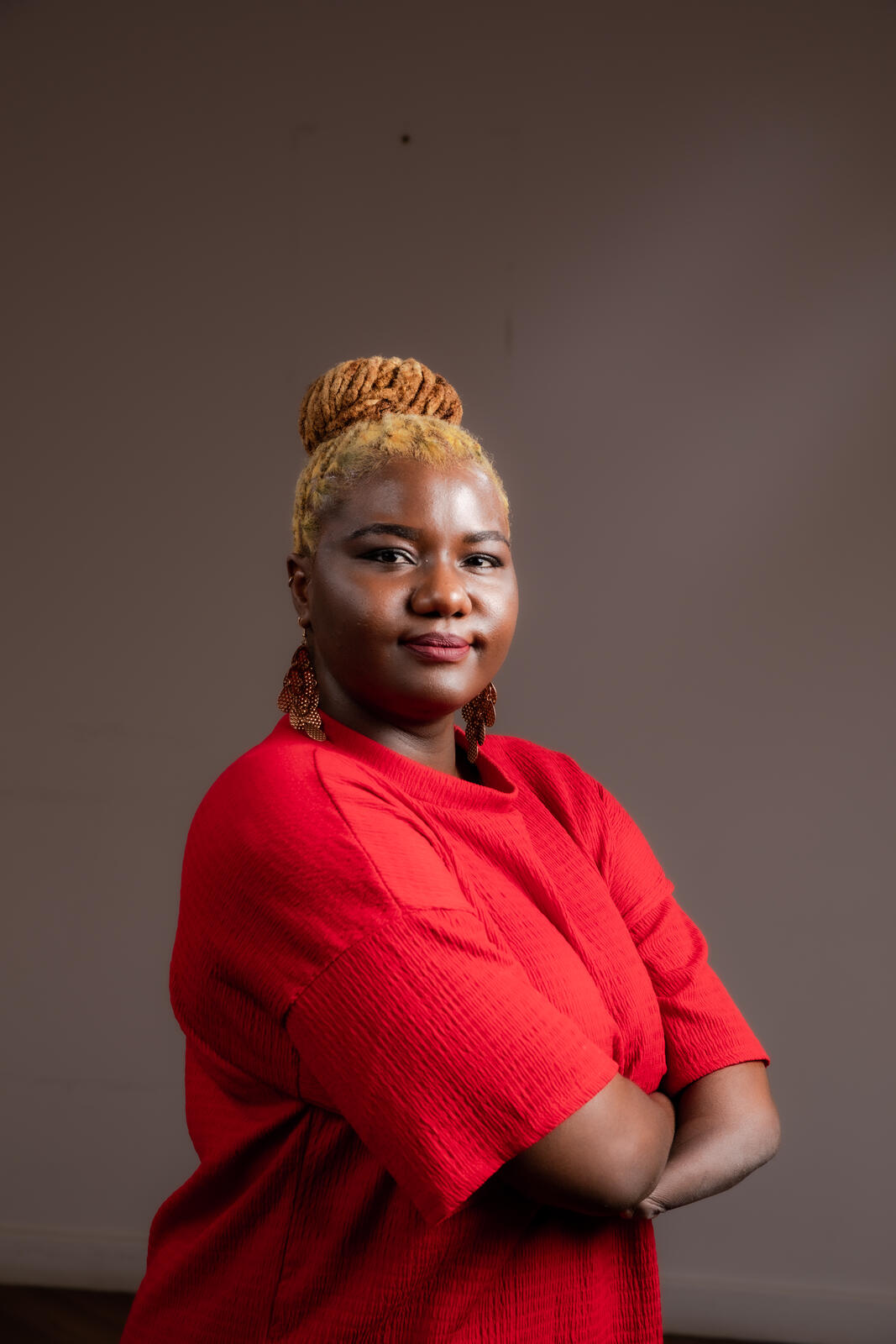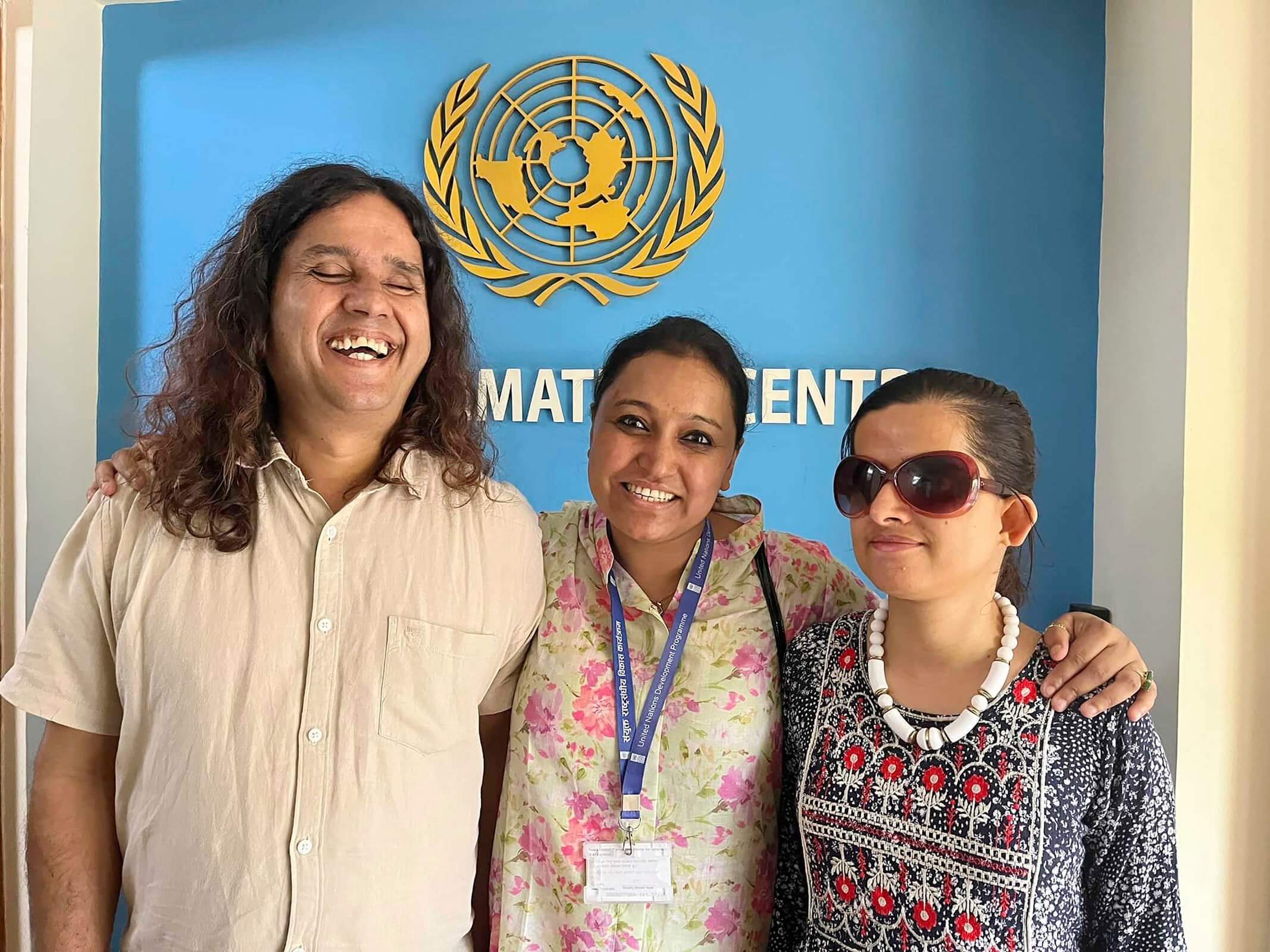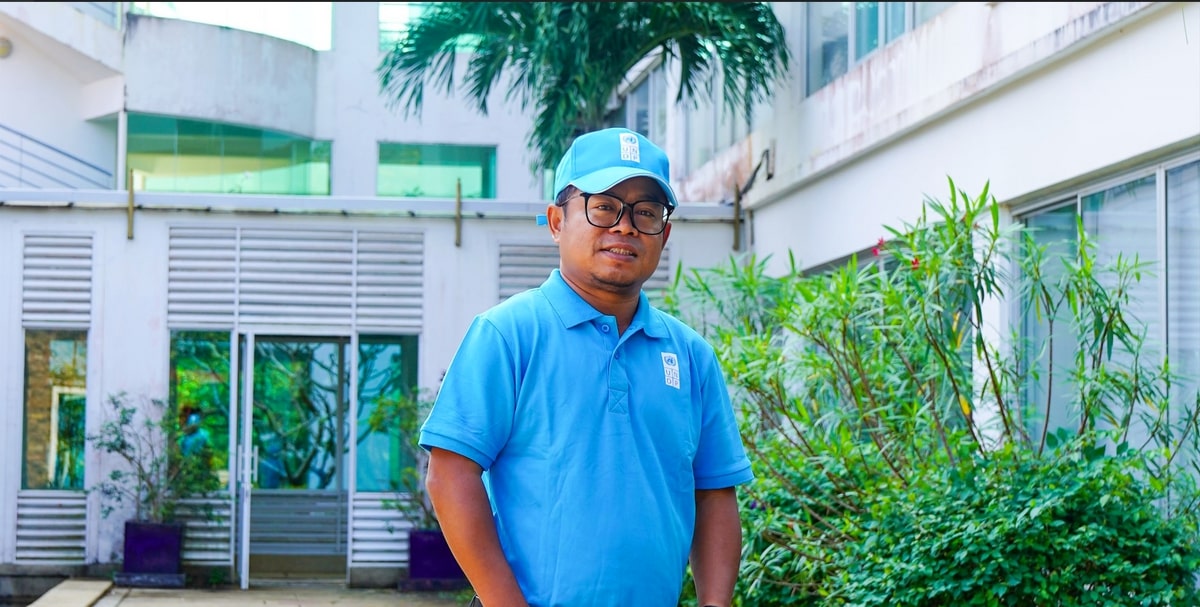

Empowering Diversity: Uzoamaka's Impact on Gender and Inclusion in Nigeria
“Uzoamaka Asiegbu contributed immensely to enlightening the UN Women Nigeria Country Office team to the opportunities available for building a more inclusive and disability-friendly office environment, programmes and conversations. She was a bold and effective advocate for the rights of persons with disabilities and ensured that the voices of young women with disabilities informed all our programme priorities. It was humbling to learn from Uzoamaka, and indeed a privilege to work with her towards implementing the principle of ‘leaving no one behind’.” - Comfort Lamptey.
Individuals like Uzoamaka Anita Asiegbu are being the catalysts for change. Growing up with the intersectionalities of a physical disability and gender, Uzoamaka experienced challenges and decided to take steps to overcome discrimination, stereotyping and exclusion.
Putting her thoughts in action, Uzoamaka became a UN Volunteer and Inclusion Analyst with UN Women Country Office (CO), and began a journey which, transcended boundaries, challenged norms, and left an indelible mark on the path to social change.
In the two years of her assignment, Uzoamaka led the development of a country-level inclusion strategy for UN Women Nigeria. Uzoamaka helped to develop a country-level inclusion reference toolkit and delivered capacity building sessions to strengthen gender equality and disability inclusion. Herself a young, African woman, with disability, she clearly realized the need to increase youth participation and work on eliminating violence against women and girls of all abilities.
Growing up in challenging circumstances prevented access to many opportunities. Uzoamaka's assignment with UN Women CO offered a gateway to address the rights of women and girls with disabilities. Under the Spotlight Initiative project, Uzoamaka ventured into various Nigerian states to uncover the silent struggles of women and girls with disabilities who experienced sexual abuse. Her investigations revealed a startling lack of awareness about available services. To bridge this gap, she partnered with the Network of Disabled Women in Nigeria, setting up dedicated desk officers in relevant government institutions to support women with disabilities.
Her physical disability did pose environmental and attitudinal challenges. While environmental barriers would prevent her from accessing physical spaces, attitudinal challenges and stereotyping were also a restraint. But Uzoamaka persisted. She had the physical spaces assessed for accessibility prior to visiting them. She regularly delivered capacity building and training sessions on mainstreaming disability inclusion.
She firmly believes, “Never assign perfection to anyone, including myself, as that is too much of a burden for anyone” and accepts people with their diverse differences.
Uzoamaka appreciates the support of her supervisor, Ms. Comfort Lamptey who recognized the significance of her work and promoted her efforts. She was also supported by the Nigeria Country Coordinator, UN Volunteers, who provided opportunities to train other volunteers in disability inclusion.
Her assignment has been a great learning experience for Uzoamaka. She said, “Everything about the two years I spent as a Volunteer was quite memorable, and it is difficult to distinguish one experience to be above others,” adding that the experience helped her professional and personal growth by enhancing her knowledge about the organizations of persons with disabilities (OPDs) in Nigeria.
Uzoamaka is now pursuing a Masters degree in Women and Gender Studies.
This article was produced with the support of Vibhu Sharma, UN Volunteer Communications Specialist - Disability Inclusion. Find out more on how to become a UN Volunteer or engage a UN Volunteer.



